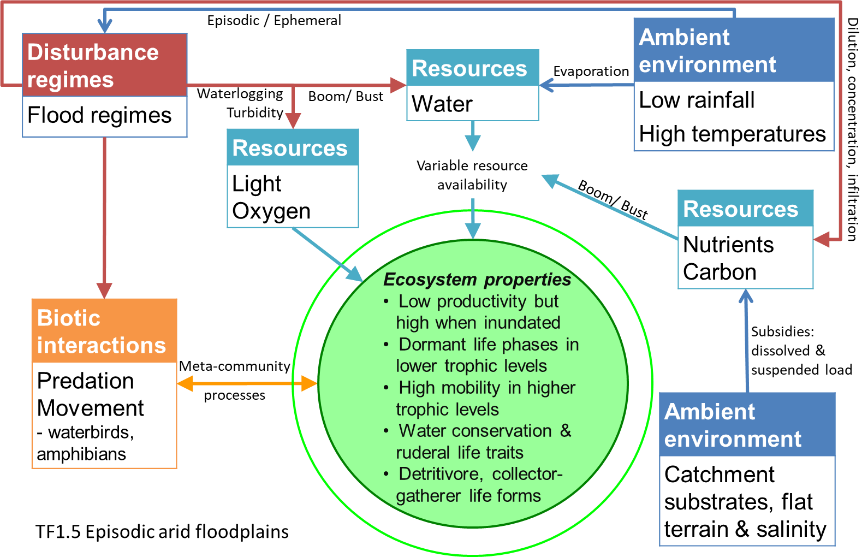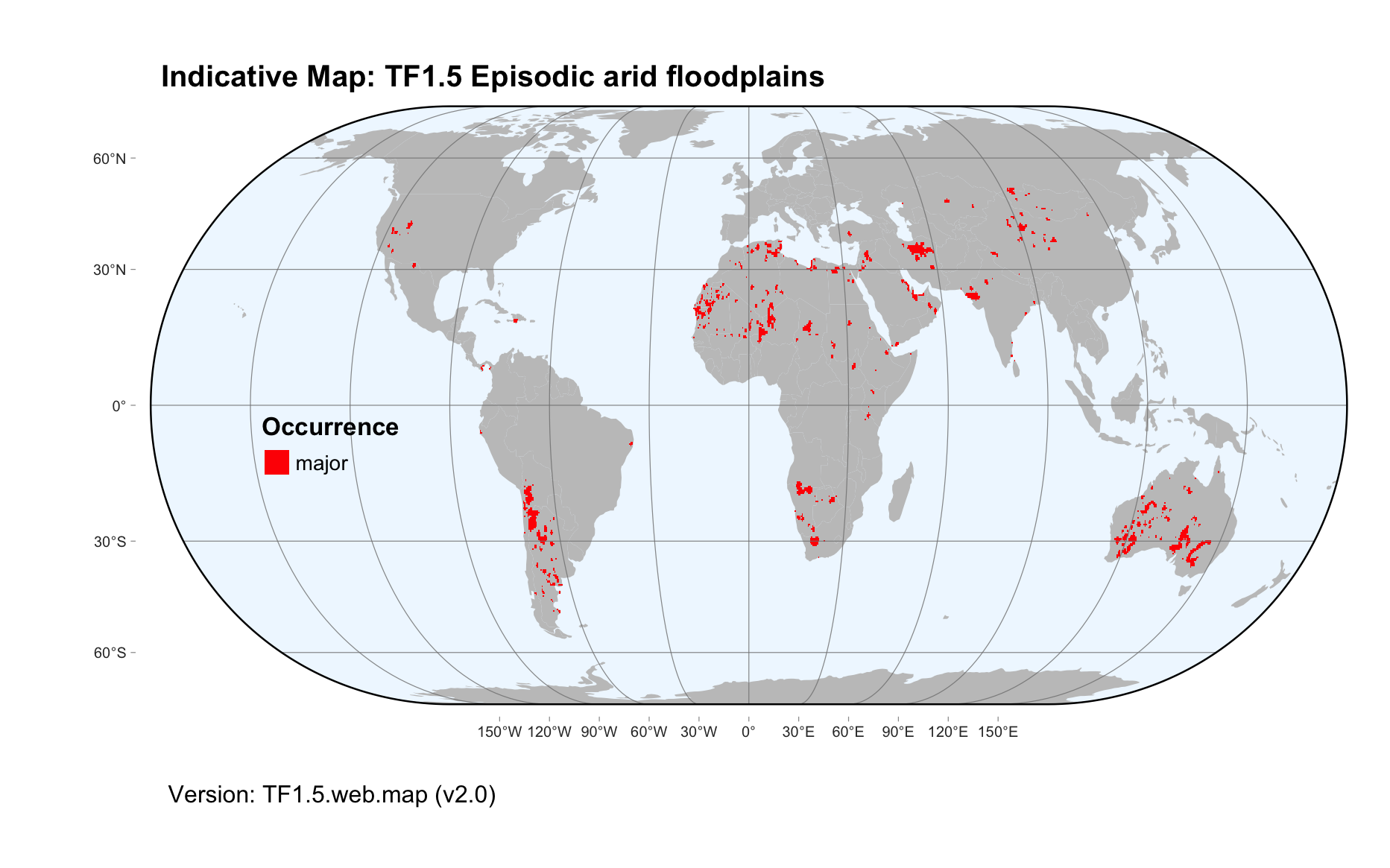Global ecosystem typology
Alternative site for the Global ecosystem typology with additional information for ecosystem profiles and indicative maps.
This site is maintained by jrfep
TF1.5 Episodic arid floodplains
Biome: TF1. Palustrine wetlands biome
Contributors:
(texts)
Episodic arid floodplains rarely flood and are predominantly dry, sometimes for years. They are supplied by temporary rivers in semi-arid and arid regions of all continents. When floods come, there is a spike in productivity as nutrients mobilise from leaf litter and organic matter. At such times, dormant plants and animals form complex food webs, capitalising on short periods of high productivity.
Key Features
Highly productive floodplains when flooded, supporting highly diverse and complex trophic networks, followed by long periods of low productivity when dry.
Overview of distribution
Semi-ard and arid regions.
Profile versions
- v1.0 (2020-01-20): RT Kingsford; RC Mac Nally; DA Keith
- v2.0 (2020-05-31): RT Kingsford; R Mac Nally; AH Arthington; JA Catford; B Robson; DA Keith
- v2.01 ():
- v2.1 (2022-04-06): RT Kingsford; R Mac Nally; AH Arthington; JA Catford; B Robson; DA Keith Full profile available at official site
Main references
Selected references for this functional group:
Bunn SE, Balcombe SR, Davies PM, Fellows CS, McKenzie-Smith FJ (2006) Aquatic productivity and food webs of desert river ecosystems Ecology of desert rivers (Ed. RT Kingsford), pp76-99. Cambridge University Press, Cambridge
McInerney PJ, Rick J. Stoffels RJ, Shackleton ME, Davey CD (2017) Flooding drives a macroinvertebrate biomass boom in ephemeral floodplain wetlands Freshwater Science 36: 726-738
Arthington AH, Balcombe S (2011) Extreme flow variability and the ‘boom and bust’ ecology of fish in arid-zone floodplain rivers: a case history with implications for environmental flows, conservation and management Ecohydrology 4, 706-720
Diagrammatic assembly model

Maps
Maps are indicative of global distribution patterns are not intended to represent fine-scale patterns. The maps show areas of the world containing major (coloured red) or minor occurrences (coloured yellow) of each ecosystem functional group. See general notes on maps.
There are 2 alternative versions of the indicative map for this functional group, please compare description and sources below.
TF1.5.WM.nwx_v1.0
Datasets
- GSW-1.1
- FEOW-2008
Map references
Pekel JF, Cottam A, Gorelick N, Belward AS (2016) High-resolution mapping of global surface water and its long-term changes Nature 540, 418-422 DOI:10.1038/nature20584
Abell R, Thieme ML, Revenga C, Bryer M, Kottelat M, Bogutskaya N, Coad B, Mandrak N, Contreras Balderas S, Bussing W, Stiassny MLJ, Skelton P, Allen GR, Unmack P, Naseka A, Ng R, Sindorf N, Robertson J, Armijo E, Higgins JV, Heibel TJ, Wikramanayake E, Olson D, López HL, Reis RE, Lundberg JG, Sabaj Pérez MH, Petry P (2008) Freshwater ecoregions of the world: A new map of biogeographic units for freshwater biodiversity conservation, BioScience 58: 403–414. DOI:10.1641/B580507
TF1.5.web.map_v2.0

Datasets
- GLWD-2004
Map references
Lehner, B. and Döll, P. (2004): Development and validation of a global database of lakes, reservoirs and wetlands. Journal of Hydrology 296/1-4: 1-22. Data-set
Check: the Glossary / Profile structure / the public document